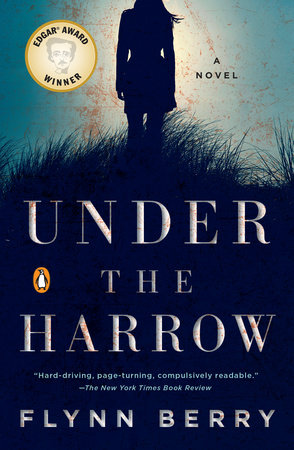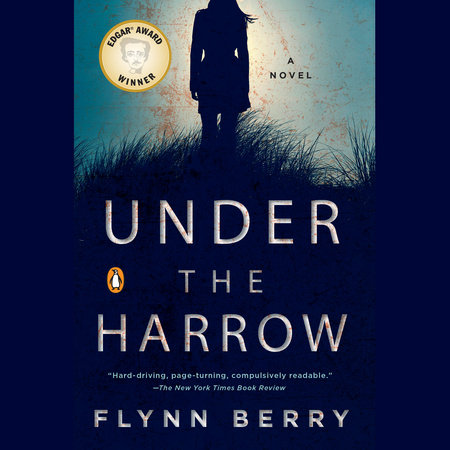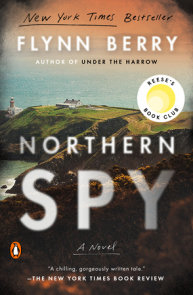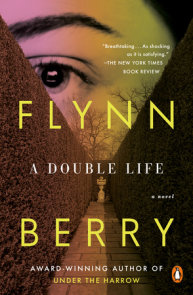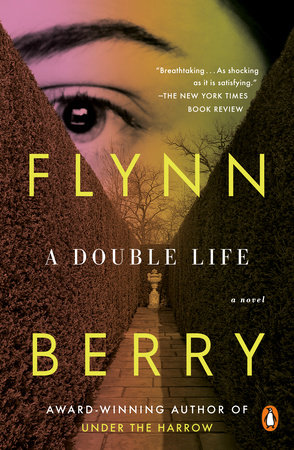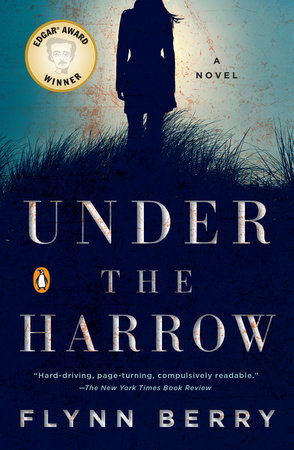

Under the Harrow
By Flynn Berry
By Flynn Berry
By Flynn Berry
By Flynn Berry
By Flynn Berry
Read by Ell Potter
By Flynn Berry
Read by Ell Potter
Category: Suspense & Thriller | Women's Fiction | Literary Fiction
Category: Suspense & Thriller | Women's Fiction | Literary Fiction
Category: Suspense & Thriller | Women's Fiction | Literary Fiction | Audiobooks

-
$17.00
Jun 14, 2016 | ISBN 9780143108573
-
Jun 14, 2016 | ISBN 9781101992067
-
Jun 27, 2023 | ISBN 9780593795118
452 Minutes
Buy the Audiobook Download:
YOU MAY ALSO LIKE
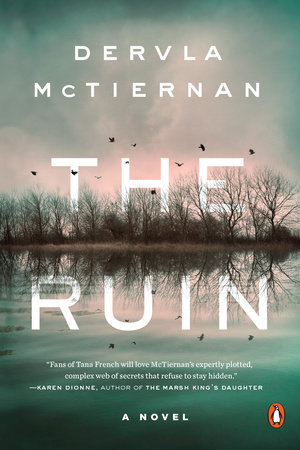
The Ruin
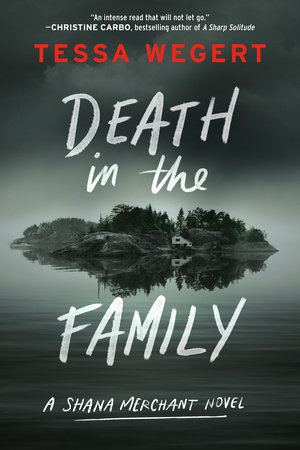
Death in the Family
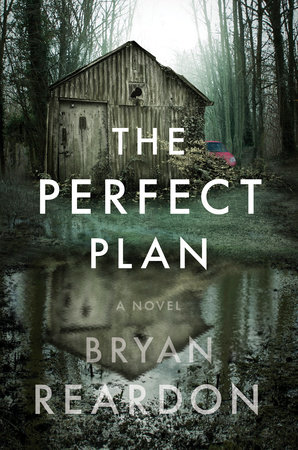
The Perfect Plan
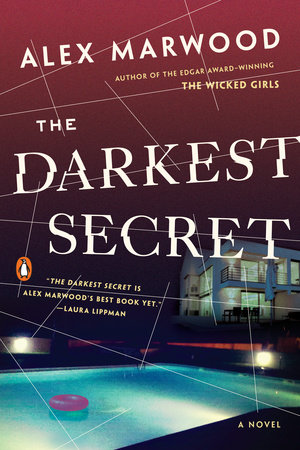
The Darkest Secret
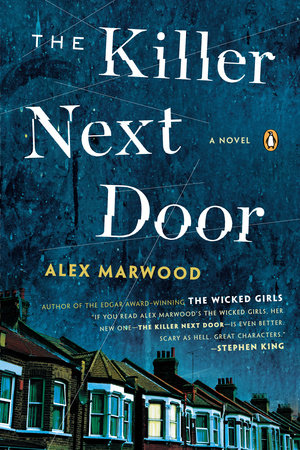
The Killer Next Door

The Dead Season
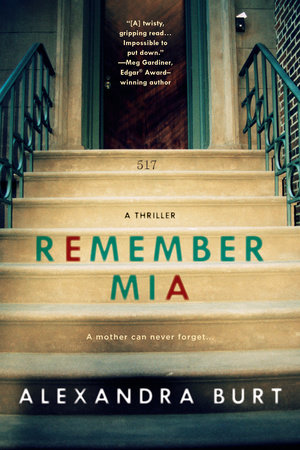
Remember Mia
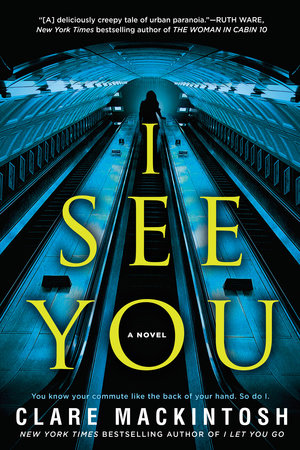
I See You
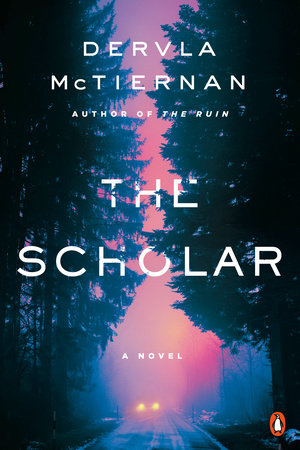
The Scholar
Praise
“A thrilling novel of psychological suspense…Under the Harrow contains similarities [to The Girl on the Train and Gone Girl] that will undoubtedly attract readers – but underneath its hard-driving, page-turning, compulsively readable narrative is a striking, original voice all Berry’s own…[Her] precise sentences call to mind Hitchcock’s meticulous storyboards and enrich the work with a cinematic scope.” —Elizabeth Brundage, The New York Times Book Review (Editors’ Choice)
“Exquisitely taut and intense. . . There’s a subtle strain of Daphne Du Maurier’s classic, Rebecca, in Under the Harrow. . . . [But] Under the Harrow is such a superbly crafted psychological thriller, it deserves to be celebrated for its own singular excellence.” —Maureen Corrigan, The Washington Post
“A brisk and chilling psychological study about grief, paranoia, and memory; a smart portrait of a complex sibling relationship; and, more than anything, an effective murder mystery…Berry takes some of the big social struggles that have animated the feminist movement and makes them specific and personal, exploring the rippling effects of power imbalances across individual lives. There’s nothing pedantic about the taut, tricky narrative, though. Like solving the whodunit, finding the bigger meaning is simply a matter of paying attention.” —The Atlantic, “The Best Books We Read in 2016”
“Flynn Berry is engaged here with the linked subjects of women, violence, and memory, in a fashion reminiscent of A.S.A. Harrison or Paula Hawkins…A slender tale full of polished, watchful prose, with an interesting kind of icy desperation in its bones.” —USA Today
“Surprise-filled . . . [Flynn Berry] has written a psychological-suspense work fit to hold its own with many recent best-sellers. And she’s done it with a narrator whose possible unreliability is not arbitrary but consistent with this well-wrought book’s conception, thereby heightening the considerable suspense.” —The Wall Street Journal
“Flynn Berry’s debut novel imbues the classic murder mystery with rich emotional depth, describing Nora’s anguish and grief so acutely that the reader feels the emotional impact of her loss as deeply as the desire to know who did it. The result is an investigation not just of the crime but also of the fierce, complicated love that exists between sisters.” —Oprah.com, “Page-Turners You’ll Devour in One Sitting”
“Mesmerizing.” —The Minneapolis Star Tribune
“In prose that is economical but perfectly judged, Berry transfixes the reader . . . Rarely has the device of the unreliable narrator been used so effectively.” —The Guardian
“The thriller of the summer.” —Bustle
“Wickedly chilling . . . As Nora’s behavior turns increasingly erratic and bizarre, she is both repellent and compelling, fascinating precisely because she is becoming so creepily unhinged. Gripping, right on through to the surprising conclusion.” —The Cleveland Plain Dealer
“Psychologically intense and darkly atmospheric . . . [It] reminded me of Patricia Highsmith in its vivid style and toxic substance.” —Carole E. Barrowman, Milwaukee Journal Sentinel
“A startling whodunnit…haunting, atmospheric, and so very clever.” —Dayton Daily News, “Favorite Fiction Titles From 2016”
“[A] skillfull, page-turning debut . . . Flynn Berry keeps you guessing up until the very end.” —Real Simple
“[Under the Harrow] envelops you in its suspenseful plot from the first page. . . . It’s not solely a plot-fueled thriller, though: Berry’s sentences are spare and biting.” —The Huffington Post
“A gripping and thoroughly detailed exploration into grief, manipulation, and jealously. . . . The most gripping aspect isn’t the typical whodunit chase; it’s the ways in which Nora’s simultaneous senses of loss, envy, disloyalty, and fixation make her as much a victim as a villain. If Berry can craft something this masterful right out of the gate, imagine what she’ll do next time.” —PopMatters
“[A] literary take on the psychological thriller.” —Elle
“Psychologically intense and thrillingly page-turning . . . Vividly drawn characters and relatably complex relationships make it all the more scary as you wonder if it could happen to you.” —PureWow
“This can’t-put-it-down psychological thriller delves into the tenuous relationship between two women who loved each other fiercely, while also lifting the veil on how little we often know about the people we consider closest to us.” —Refinery29
“This is the sort of book you will likely plow through during a single session at the beach. . . . It’s deftly told, quirky, and full of small surprises.” —Goop.com
“A twisty psychological thriller.” —The Fort Worth Star-Telegram
“If you’re a suspense lover who’s looking to fill that Gillian Flynn-size void on the nightstand, Flynn Berry’s debut novel, Under the Harrow, should do the trick.” —Phoenix New Times
“Under the Harrow is an absorbing psychological thriller that penetrates the intricacies of grief, from the anguish of death to an arguable return to normality for the survivors. More noteworthy than the tautly woven plot, though, is Berry’s captivating prose, which forces readers to question, with Nora, how well we can ever know our loved ones and, in turn, ourselves.” —The Strand
“Magnificent. Flynn Berry is one heck of a story teller.” —WYSO Miami
“Hitchcockian . . . A moody psychological thriller that explores sisterhood’s complex mix of love and resentment.” —Booklist
“A stunningly complex novel of psychological suspense, exploring the bonds of sisterly love and rivalry through the lens of two brutal acts of violence—introducing an exciting new voice to the genre.” —Shelf Awareness
“[A] keenly wrought debut . . . Berry accomplishes the rare feat of making the victim come alive on the page without ever sacrificing the deep, all-encompassing loss felt by those left behind.” —Kirkus Reviews
“Obsession and memory, rage and regret, power this atmospheric psychological suspense debut.” —Library Journal
“A page-turner . . . that will have readers yearning to see what the mind of Flynn Berry has up next.” —Suspense Magazine
“Berry’s cool voice and the world it invokes are the stuff of classic crime fiction, but this is deeper than a caper—it is the story of a woman working through her stages of grief.” —RT Book Reviews
“Once I started reading Under the Harrow, I couldn’t stop. It’s like Broadchurch written by Elena Ferrante. I’ve been telling all my friends to read it—the highest compliment. Flynn Berry is a deeply interesting writer.” —Claire Messud, author of The Emperor’s Children and The Woman Upstairs
“I read Under the Harrow through the night—I couldn’t put it down. Berry’s deft touch with atmosphere and emotion are sure to make this a stand out.” —Alex Marwood, author of The Wicked Girls and The Killer Next Door
“What grabbed me by the bones and hurled me through this read-in-one-sitting novel wasn’t the plot, as compelling and tenacious and suspenseful as it is. Rather, it was Flynn Berry’s perfect, unrelenting prose. This is flawless storytelling.” —Jill Alexander Essbaum, author of Hausfrau
“Under the Harrow is a compulsively readable and atmospheric novel that I consumed almost in one sitting. The portrayal of the two sisters is subtle, original and compelling.” —Rosamund Lupton, author of Sister
“A nail-biter that fans of Gone Girl and Girl on the Train will no doubt love, Under the Harrow is swiftly carried along by a momentum of unraveling certainties that ramp up with every page, building to the end’s thrilling crescendo. I loved this dark, chilling book and couldn’t put it down.” —Suzanne Rindell, author of The Other Typist
“Flynn Berry’s writing is clear and spare yet textured and instantly immersive. You know from the get go that something is not quite right, and this sense of unease and mystery grows and grows as you discover more about Nora’s complex relationship with her sister. I read Under the Harrow very quickly and when I wasn’t reading it I was thinking about it.” —Harriet Lane, author of Her
“Under the Harrow offers exactly the kind of voracious, absorbing, one-sitting read that readers love. Taut with suspense, it is full of insight and suffused with emotions that will move you. The central relationship between two adult sisters is a heartbreaker, the tenderness, the loyalty, and the sorrow all ringing so true.” —Robin Black, author of Life Drawing
“Under the Harrow airdrops the reader into the unsettling aftermath of trauma, where shifting memories collide with obsession in a propulsive story of love, grief, and murder. Gripping and nuanced, this stylish thriller is not to be missed.” —Koethi Zan, author of The Never List
21 Books You’ve Been Meaning to Read
Just for joining you’ll get personalized recommendations on your dashboard daily and features only for members.
Find Out More Join Now Sign In






